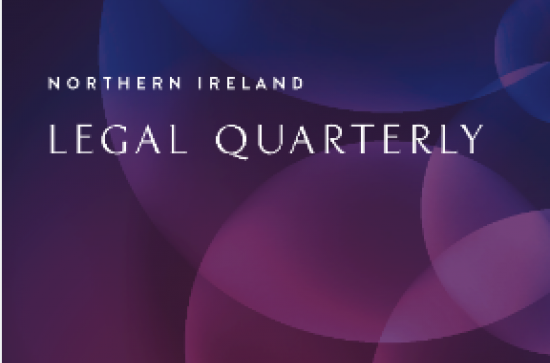
The Maynooth Centre for European Law is pleased to announce the publication of a special issue of the Northern Ireland Legal Quarterly co-edited by three of its members: Prof Tobias Lock, Dr Mary Dobbs and Dr Karen Lynch Shally. The special issue is open access and available here.
The special issue is the product of the Centre’s launch workshop on the Windsor Framework - the name given to the reworked protocol on Ireland/Northern Ireland – which took place in June 2023 and which was generously supported by the Maynooth University Social Sciences Institute and the University’s Impact Through Dissemination Fund.
The Windsor Framework is the (for now) endpoint of the highly politicised nature of the Brexit process, which crystallised in the legal questions and legal solutions for dealing with the UK’s only land border with the EU and the unique political situation in Northern Ireland. The contributions to the special issue analyse the complex legal structures created by the Windsor Framework in their political, historical and social context.. McCrudden's legal-historic contribution uncovers – perhaps counter-intuitively - the substantial influence of loyalist politicians in the drafting of the rights, safeguards and equality of opportunities section of the Belfast/Good Friday Agreement. Deb, Frantziou and Lock explore the circumstances under which the EU Charter of Fundamental Rights continues to apply in Northern Ireland by virtue of Article 2 of the Windsor Framework. Similarly, the contributions by Bartlett and Hervey – on social rights - and by Dobbs, Hough, Kelleher, Whitten, and Brennan - on environmental protection - make important contributions and predictions as to the potentially transformative power of Article 2 in the years ahead. Murray’s analysis explores the background to the political stalemate in Northern Ireland resulting from Brexit and explains its legal, political and economic fallout. O'Donoghue casts the web considerably wider by contrasting Northern Ireland’s model of economic governance with historic and current examples of exceptional economic governance spaces. The special issue is rounded off by two shorter contributions by Maher and Schiek on the limitations of the Common Travel Area demonstrating that compares poorly to proper free movement provisions.
